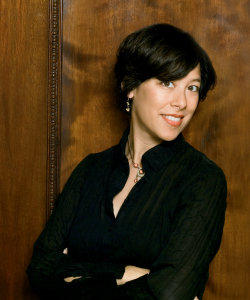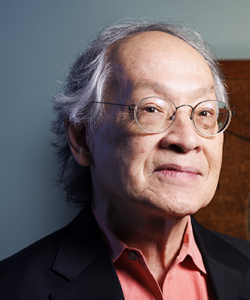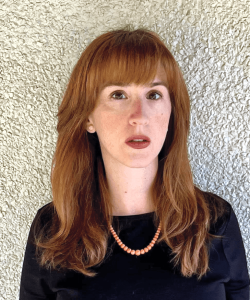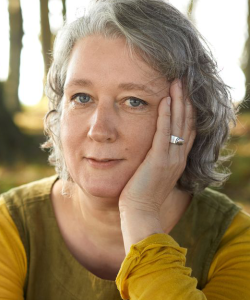The Moment of Origin: A Profile of Susan Choi

For novelist Susan Choi, history holds a fascination that can lead to fiction with a present-day relevance.
Jump to navigation Skip to content
Articles from Poet & Writers Magazine include material from the print edition plus exclusive online-only material.

For novelist Susan Choi, history holds a fascination that can lead to fiction with a present-day relevance.

“I wish all writers the audiences they desire and the acclaim they deserve.” —Ashley M. Jones, author of Lullaby for the Grieving

During his term as poet laureate, Sze plans to have a special focus on poetry in translation.

“When an impediment arrives, I try writing about it. This helps me remain patient.” —Jeannie Vanasco, author of A Silent Treatment

The author of Indigo (Copper Canyon Press, 2020) reflects on the lessons Robert Frost offers us when writing about loss.

“Stop telling yourself you can’t do this.” —Patrick Ryan, author of Buckeye

“[Y]ou can’t edit something into being good before getting it down.” —Austyn Wohlers, author of Hothouse Bloom

The author of Indigo (Copper Canyon Press, 2020) recommends writers use coding when trying to describe loss.

Literary and arts organizations are left reeling after budget cuts at the NEA, NEH, and IMLS.

Faculty, program type, format, and size are just a few of factors to consider when finding a school that suits who you are as a writer.

After an unexpected split from her longtime agent, an author reconnects with her sense of calling and remembers who she writes for: herself.

An executive editor at Scribner, previously a senior editor at Grove Atlantic, Katie Raissian talks about learning to be fearless, what grabs her in a query, and the art of publishing books.

A writing degree’s worth lies in early readers met, sacred hours at the desk, life-changing books, and deep community.

An author who worked for years as a scribe at the Harvard Business School shares the lessons she learned that can be applied to writing, most notably: Believe that what you do is valuable.

A novelist explores the craft of imagining a fictional setting based on a real-world location that holds a capacity for convergence, a place where many threads intersect and many stories are born.

Essays by debut authors Sarah Aziza, Erika J. Simpson, Julian Brave NoiseCat, Amanda Hess, and Samina Najmi as well as excerpts from their books.

In her third novel, The Loneliness of Sonia and Sunny, which comes out nearly twenty years after her Booker Prize–winning The Inheritance of Loss, Kiran Desai considers loneliness in all its states of loss and heartache, possibility and promise, through the lens of a love story.

A poet who canceled the contract for her debut collection describes the difficult years-long process of scrubbing the internet of erroneous information about her book.

An agent with twenty years of experience selling foreign rights on both sides of the Atlantic unpacks what can appear to be a complicated and unfamiliar aspect of book publishing.

With Regaining Unconsciousness, her first poetry collection in twelve years, Harryette Mullen sounds an alarm for our uncertain future with a poetics both urgent and playful.

Use your essay to answer the question: Devoting two years to writing can be a dream come true, but why is it your dream?

Time well-spent in grad school means “learning to labor in language in such a way that you’ve made yourself worthy of the next labor.”

Clever use of the software’s Headings tools can make even the most beastly manuscript easier to wrangle.

The new editor in chief of Ploughshares discusses her vision for expanding the journal’s digital format and its community.